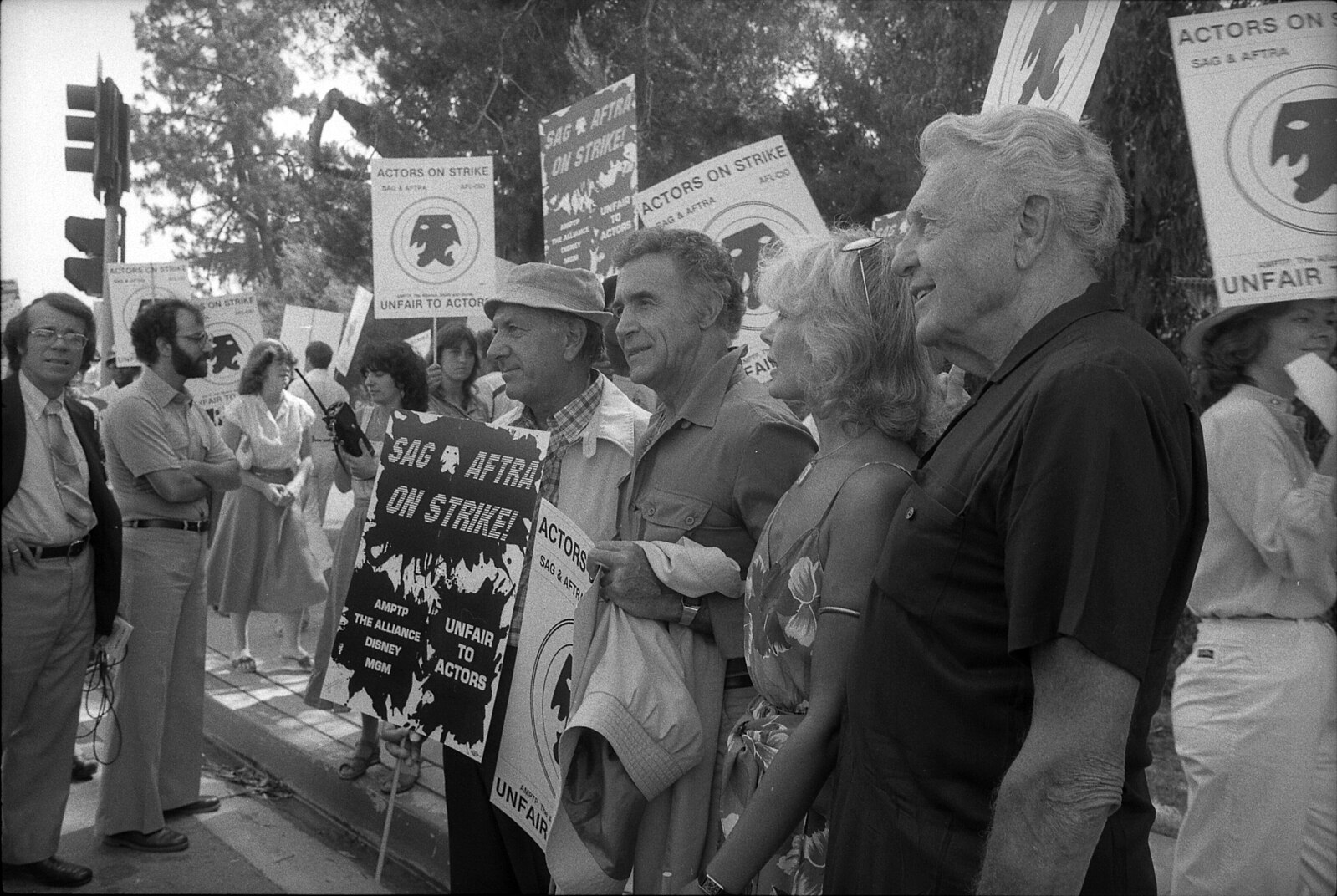
Maddie Chang is a student at Harvard Law School.
In today’s Tech@Work, tech-related issues at play in Hollywood strikes bubble up; and footage from Amazon’s in-van surveillance cameras is leaking online.
In an LA Times editorial, columnist Brian Merchant draws the connection between Hollywood strikes and big tech. Merchant argues that two separate Silicon Valley-bred elements have added fuel to the ongoing Writers Guild of America and SAG-AFTRA strikes: the streaming business model, and the specter of AI-generated scripts and performances. Studios have all started emulating Netflix’s business model, including its lack of transparency around viewership. In the old world of network TV, networks disclosed viewership numbers, habits, and ratings, which made it possible for actors and writers to value their work and receive residuals accordingly. In the streaming era, platforms are paying lower residuals to actors and writers than before, and are also refusing to reveal viewership information – leaving workers without the data that would be crucial to negotiating better wages.
Union members’ second tech-related concern stems from the potential to use generative AI to create scripts and on-screen performances. An article in Variety this week highlights how this might play out for background actors in particular. Background actors, or extras, account for up to 32,000 of SAG-AFTRA’s 160,000 person membership and are the lowest paid group within the union. Union members have spoken up about a practice wherein background actors’ images and likeness are scanned and then repurposed in another context without consent or pay (which also inspired a New Yorker satire this week). A background actor quoted in the Variety article asks: “If they have my image, and they can manipulate it any way they want, why do they need to hire me again?” The Alliance of Motion Picture and Television Producers (AMPTP), which represents the studios, has contested this characterization of how they intend to use AI. In any case, background actors are less protected than principal actors. In the union contract, producers must re-negotiate bargains with principal actors if they want to reuse footage. This provision does not cover background actors. At a minimum, the union is pushing for consent and compensation if background actors’ footage is repurposed.
Finally, as reported in Vice, there has been an unexplained uptick in anonymous posting of videos that appear to be from Amazon delivery van surveillance cameras. As the article notes, many of the videos were clearly not posted by the subject of the videos – they are recordings of surveillance footage taken from within Amazon delivery warehouses. When Vice separately reported on consent forms drivers had to sign that would enable biometric surveillance, Amazon clarified that the surveillance cameras were for safety only. But as this recent article points out, the leak of the videos highlights that what begins as a safety feature may take on other monitoring functions. This concern was at play in the recent UPS Teamsters agreement. One of five key demands was for no more driver-facing surveillance cameras in trucks. Teamsters were able to get a concession that ensures that surveillance footage will not be used for disciplinary purposes.






Daily News & Commentary
Start your day with our roundup of the latest labor developments. See all
February 8
The Second Circuit rejects a constitutional challenge to the NLRB, pharmacy and lab technicians join a California healthcare strike, and the EEOC defends a single better-paid worker standard in Equal Pay Act suits.
February 6
The California Supreme Court rules on an arbitration agreement, Trump administration announces new rule on civil service protections, and states modify affirmative action requirements
February 5
Minnesota schools and teachers sue to limit ICE presence near schools; labor leaders call on Newsom to protect workers from AI; UAW and Volkswagen reach a tentative agreement.
February 4
Lawsuit challenges Trump Gold Card; insurance coverage of fertility services; moratorium on layoffs for federal workers extended
February 3
In today’s news and commentary, Bloomberg reports on a drop in unionization, Starbucks challenges an NLRB ruling, and a federal judge blocks DHS termination of protections for Haitian migrants. Volatile economic conditions and a shifting political climate drove new union membership sharply lower in 2025, according to a Bloomberg Law report analyzing trends in labor […]
February 2
Amazon announces layoffs; Trump picks BLS commissioner; DOL authorizes supplemental H-2B visas.